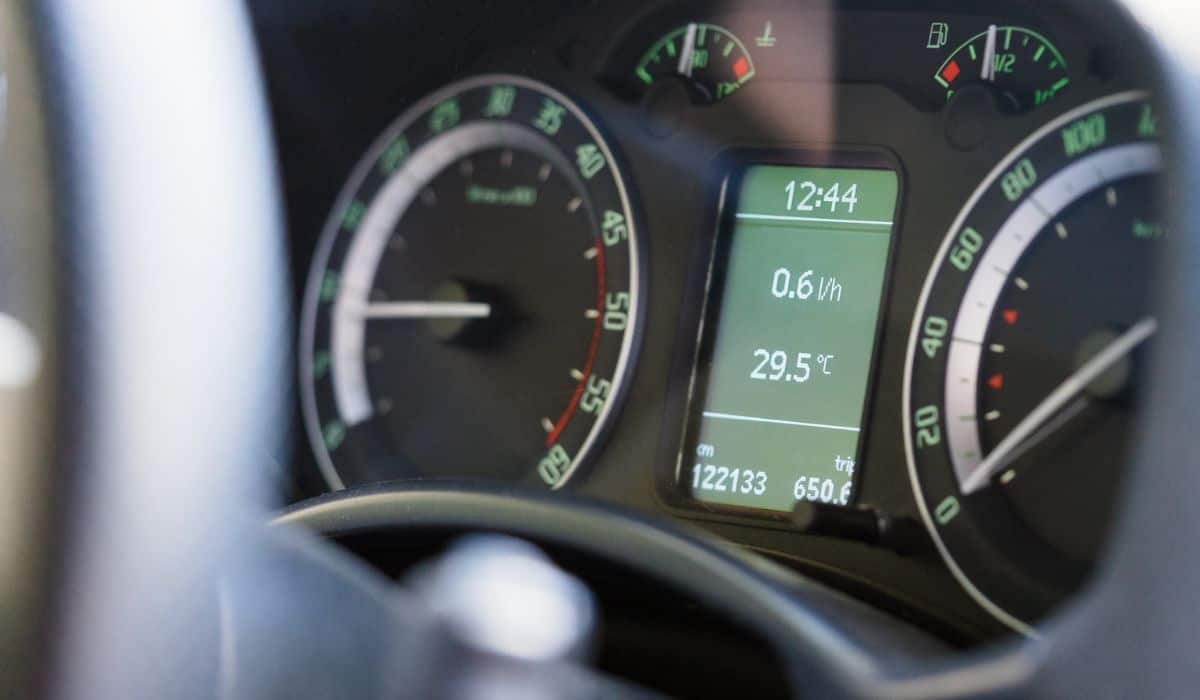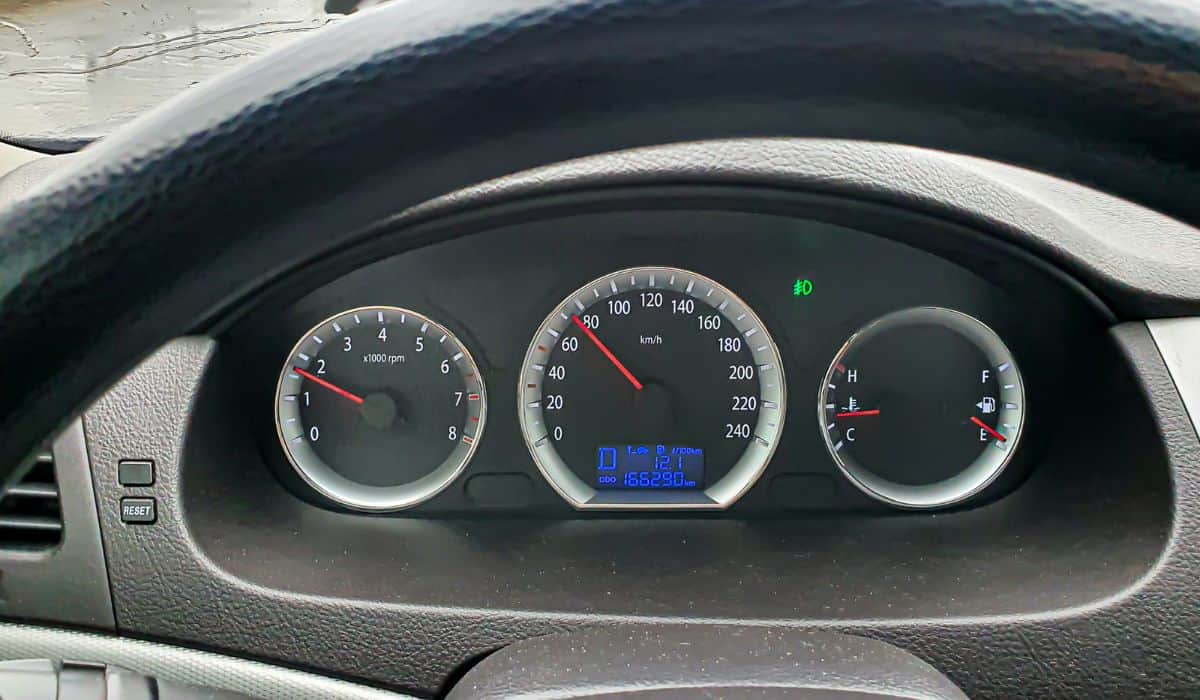Exempt Odometer: What You Need to Know
Most buyers find it confusing when buying a used car designated as “exempt.” If a dealer isn’t declaring actual vehicle mileage, it doesn’t always indicate odometer mileage discrepancy or fraud. So, what does it mean when an odometer says “exempt”?
If the odometer is “exempt,” the car is 10 or 20 years old. Exempt vehicles are not always bad, as some still have high-performing engines and well-maintained parts. You can know the genuine mileage by checking the VHR or VIN of the vehicle in some cases.
Let’s discuss an odometer saying “exempt” in more detail, what it means and how to assess used cars labeled as “exempt.”
What Does it Mean When the Odometer is Exempt?

When you see a vehicle labeled “exempt,” it means it is ten years or older. But, if the vehicle manufacturing year is 2011 or onwards, the car has already reached or crossed 20 years.
Federal law has allowed these vehicles not to mention their mileage, so they are tagged as “exempted.” However, the Federal Odometer Act (FOA) has bound sellers to say actual traveled mileage when selling a used car, protecting the potential buyer from odometer fraud.
Car dealers or sellers commit odometer fraud by tampering with odometer readings. For example, they reset the odometer readings or disconnect the magnetic sensors that send the distance pulses to the odometer.
This allows them to trap a buyer to get more profitable deals. To avoid fraud, you should cross-check the title readings with the vehicle history report. Make sure to report the fraud to the law enforcement agencies of your state before the seller gets on with it.
However, not all cases of faulty odometer readings are caused by fraud. Sometimes, the car’s odometer may wear away with time, incorrectly calculating the mileage. In other cases, the odometer may become broken, and the actual mileage won’t be known.
This is where odometer exemption comes into play. You can still sell the car if you have an older vehicle and the odometer isn’t recording correctly.
Do All States Allow Odometer Exemption?
Most states allow vehicle owners to tag their vehicles as “exempt” if it meets certain conditions and age limits.
However, some states like Michigan never allow you to escape mentioning traveled mileage based on your vehicle age. Instead, these states bind you to say accurate mileage even if your car is 10 or 20 years old.
Some states like Florida even go a step further to secure the interest of potential buyers by introducing “exceeds mechanical limits” designations to some cars. For example, the odometer in your vehicle has maximum recording numbers, and it stops recording additional mileage if this number is reached.
The State government allows such vehicle owners to flip the odometer readings to 1 only after tagging the vehicle as “exceeds mechanical limits.” This designation means the car has reached or crossed the available mechanical limit on its odometer and has been returned to number 1.
To protect the buyer from such a situation, some state DMVs tag vehicles with “True Mileage Unknown (TMU),” meaning these cars have inaccurate odometer readings. Vehicles with this designation are also sold at considerably low prices, benefiting the buyers.
But many times, it becomes hard to sell or buy TMU vehicles, as most banks won’t give you loans to buy TMU vehicles, or many insurance companies refuse to insure your vehicle.
In Wisconsin, your car is exempted from declaring its traveled mileage if it is non-motorized, like a trailer car. You also don’t need to report title mileage on sales if your car is low-speed. If your vehicle has a registered weight of over 16,000 lbs., you can also tag it as “exempt.”
So, whatever the reason, if your vehicle carries a federal “exempt” tag, it’ll be favorable for you when selling the car, increasing your reliability to gain buyer trust. However, its price will surely be less than vehicles that don’t carry this tag.
Is Exempt Mileage Bad?
Exempt mileage cars are not necessarily bad, as they can offer several other benefits. For example, some classic cars have durable and powerful engines. This makes them last longer without causing serious motive problems, considerably reducing repair or replacement costs.
Some owners are so conscious about their cars they take special care of their components. For example, they regularly clean their vehicles, periodically wash them, carefully drive them without hurting the engine and other internal parts, or park them in safer places, so they may not get scratched or damaged.
Even if such cars are exempt, you would surely enjoy having them, as they give you better mileage and acceleration.
Exempt mileage vehicles are also not bad because they’re not showing fraudulent readings that can stipulate federal laws against you. If a car is designated as “exempt,” it confirms that the odometer readings are not tampered with, and you can rely on the reported title readings without worrying.
To some old car lovers, it is exhilarating to have a classic car; they are least concerned if the vehicle has “exempt” tags.
The Drawbacks
However, you should also consider possible drawbacks before buying a used car with the “exempt” tag. The longer a vehicle runs, the higher the possibility of wear and tear. If the car has run over 10 or 20 years, its components will likely not perform as better as they could when they were first installed.
You may frequently face engine problems like stallation, misfires, or transmission issues. When components are worn out, braking issues, idling, tire imbalance, or dead engines are some of the most common problems it may lead to.
A high mileage car may also have low fuel economy, as it has ineffective fuel pumps. In addition, poor combustion systems will also need to burn more fuel to generate enough power to supply the engine, reducing fuel efficiency.
So, the exempt mileage vehicle can be good for you, depending on the wear and tear of its components, body conditions, engine type, or company and model of the car.
How Can You Check if a Car’s Mileage is Genuine?

Knowing a vehicle’s actual mileage when buying a used car is essential. The vehicle title’s reported mileage significantly impacts the deal, especially in price negotiations.
If you suspect a dealer for reporting tempered mileage on the vehicle title, here’s how you can check if the car’s mileage is genuine.
- Look at Odometer Readings: The first thing you should do is ensure the reported title mileage matches the mileage readings on the odometer. You may think the car’s mileage is genuine if it does.
- Cross-Check with Vehicle History Reports (VHR): When you see an odometer discrepancy, ask the owner to show you a vehicle history report which is a state document that records all information about the vehicle.
- VIN Report: You can also check vehicle identification reports to see the genuine mileage of the vehicle you’re buying.
- Wear and Tear: A good buyer of used vehicles always checks vehicle parts to confirm if the reported mileages are correct. Look at the vehicle parts like brakes, fuel pumps, driver’s seats, gears, or any other component that may give you an idea about the mileage the vehicle may have run.
- Maintenance Docs: If the owner fails to produce any maintenance documents, you should suspect the reported mileage and ask him hard questions.
- Visit a Professional: If unsure, get the vehicle inspected by a certified mechanic. Since they know the parts well, they can give you a better idea about the genuine mileage.
